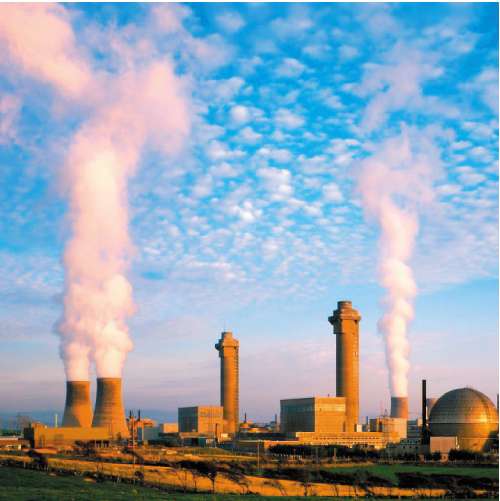Brown sets 'no limit' on number of nuclear reactors to be built

Gordon Brown is to fast-track the building of at least eight nuclear power stations to cut Britain's dependence on oil following the dramatic rise in its price.
The Prime Minister will set "no upper limit" on the number of nuclear plants that will be built by private companies. That would mean nuclear, which provides about 20 per cent of Britain's electricity, could meet a bigger share after the new generation of nuclear stations come on stream over the next 15 years.
Mr Brown fears the UK could experience an energy supply crisis if it does not step up its nuclear programme. He believes that fast-rising oil prices have tipped the balance even more in favour of nuclear and renewable energy, such as wind and wave power, since the Government published a White Paper in January, which backed nuclear.
The Prime Minister's growing enthusiasm for nuclear has provoked controversy. Environmental groups believe that it is not safe and would land taxpayers with a huge clean-up bill after the new plants are decommissioned, pointing to the £73bn cost of phasing out the existing 10 reactors. All except one of them – Sizewell B – will shut down over the next 15 years.
The Liberal Democrats also warned that a switch to more nuclear energy would do nothing to solve the immediate problems caused by the doubling of oil prices over the past year.
Yesterday, the Prime Minister outlined his vision of a "post-oil economy", calling for "a renaissance of nuclear power" and "massive expansion" of renewable energy in which the North Sea becomes "the Gulf of the future" by harnessing the power of the wind. He promised that on nuclear, Britain would work to ensure the best arrangements for security, safety and disposal.
Addressing 42 leaders from the EU, North Africa and Middle East at a "Union for the Mediterranean" summit in Paris, he said that oil dependency posed a threat to economic stability and family finances and was not environmentally sustainable. He supported the creation of "sun farms" in the Sahara and across the region.
Britain's 10 existing nuclear stations generate about 10 gigawatts of electricity. Their decommissioning could cause power cuts, ministers believe, because about a third of the nation's coal and oil-fired power stations will also have to close to meet environmental laws. The new generation of medium-sized nuclear reactors would each generate 1.2 gigawatts, so Mr Brown believes at least eight would be required to make up for the nuclear stations that become obsolete.
A Downing Street source said yesterday: "The industry will not make the long-term investment required to build a new nuclear power station if they think the Government is not totally committed to nuclear energy. That is why the Tory vote against the Planning Bill was so dangerous."
Most of the new power stations are expected to be built near existing sites, where opposition from local residents would be less as they could safeguard or create jobs. Following applications by energy companies, the Government will confirm the location of the new plants in 2010. Energy firms believe they will start to generate electricity by 2017.
A report for the Government by the energy analysts Jackson Consulting, published last year, rated the existing sites green, amber or red for their suitability for new reactors. Those graded green were Hinkley Point, Somerset; Sizewell, Suffolk; Bradwell, Essex; Dungeness, Kent; Hartlepool, Co Durham; Heysham, Lancashire; Hunterston, North Ayrshire; Torness, East Lothian; and Wylfa, on the island of Anglesey.
Graded amber were: Calder Hall, Cumbria; Oldbury, near Bristol; and Chapelcross, near the Solway estuary. Berkeley in Gloucestershire and Trydydd in Snowdonia, north Wales, were not suitable. The Government insists no decisions on sites have yet been taken.
But new plants might not be built in Scotland. The Scottish National Party administration in Edinburgh opposes nuclear power and its consent is needed for big power stations.
How nuclear power came back from the dead
A White Paper on energy, released in 2003, described nuclear power as an "unattractive option" and included no plans to replace existing reactors when they closed. Although it left a tiny door ajar open to more nuclear plants, Friends of the Earth said the policy sounded "the death knell" for nuclear power in Britain.
As climate change rose up the political agenda, former prime minister Tony Blair became convinced a new generation of nuclear plants would offer a low carbon component to energy needs. In 2006 he said more nuclear plants should be built. An advantage, he argued, would be that nuclear power would make Britain less dependent on imports such as gas from Russia. There was a false start when the High Court ruled the Government had failed to consult properly over its nuclear plans.
A White Paper in January described nuclear power as safe, low carbon, affordable and dependable.
Join our commenting forum
Join thought-provoking conversations, follow other Independent readers and see their replies
Comments
Bookmark popover
Removed from bookmarks